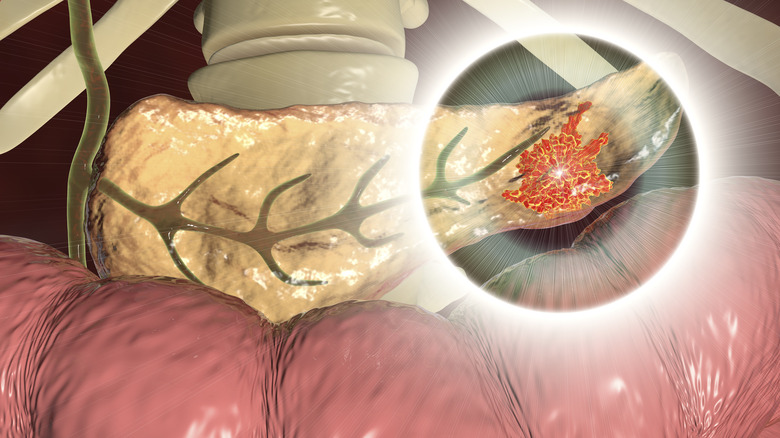Star Trek's Jonathan Frakes Wants You To Ask Your Doctor About Pancreatic Cancer - Exclusive
Jonathan Frakes is best known as Will Riker in the "Star Trek" franchise, but he sees himself as more of a director these days, according to an exclusive interview with Health Digest. His curiosity for directing stems back to the late '80s, when he was shooting "Star Trek: The Next Generation." After shadowing directors for three years, Frakes took the directing helm for the Next Gen episode, "The Offspring."
"And from there, I was blessed to do more and more and more," Frakes said. "And I'm actually a better director, I think, than I ever was as an actor." More recently, his role as a director led him to several episodes of "Star Trek: Picard" and the 5th season of "Star Trek: Discovery" in Toronto.
In the past three years, though, Frakes stepped into a more personal role –- the role of an advocate for pancreatic cancer. Twenty-five years ago, Frakes' brother Daniel died of the disease at 41.
How the Star Trek family inspired him to get involved
Many years after Daniel's death, Frakes' friend and "Star Trek: Deep Space Nine" colleague Kitty Swink recruited him to get involved with Pancreatic Cancer Action Network (PanCAN). Swink is an 18-year pancreatic cancer survivor.
"So Kitty, obviously, is a beacon of hope," Frakes said. "You could just see my mom light up because Kitty's survival somehow softened the blow of her son's death. I guess it gave her hope. I know it gave me hope."
Another "Star Trek" alum, Jeri Ryan tapped Frakes to shoot a promo video for ALS. Ryan's "Picard" stand-in, Margot Muraszkiewicz, was diagnosed with a rapid form of ALS (via GoFundMe). "We're a pretty tight family over there at 'Star Trek,' I got to say," Frakes said. "And it's wonderful to see the support that we provide for each other ... So it's kind of a privilege to be around these people."
Early detection is key to surviving pancreatic cancer
Pancreatic cancer is difficult to detect because the pancreas lies so deep in the abdomen, according to PanCAN. Symptoms such as jaundice or abdominal pain often don't develop until the cancer has spread (via Mayo Clinic).
Frakes now urges people who've had a family history of pancreatic cancer to talk to their doctor about testing for the disease. According to the American Cancer Society, having a family member who had pancreatic cancer can increase your risk of developing the disease. Although genetic testing can't detect pancreatic cancer, it can look for any inherited conditions related to pancreatic cancer. Frakes says that when his brother died, the survival rate was 4%. Now it's up to 11%.
Frakes says how important it is to connect with others for support. "So grief is tough, but grief I think is less tough when you find other people in the room, be it a virtual room, who have had the same type of experience," he said.
Frakes and Swink created the Trek Against Pancreatic Cancer team to raise thousands of dollars for 2022's PurpleStride, a fundraising walk to support PanCAN. Next year's walk will be on April 29 in more than 60 cities across the United States.



